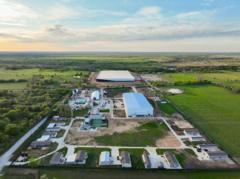Andrew McIntyre, a convicted British extremist, received a seven-year sentence for inciting violence through social media. Elon Musk criticized the length of the sentence, prompting discussions about the intersection of social media, free speech, and rising extremism.
Elon Musk's Remarks on Neo-Nazi Sentencing Sparks Controversy

Elon Musk's Remarks on Neo-Nazi Sentencing Sparks Controversy
Andrew McIntyre's seven-year prison sentence for inciting riots in the UK has elicited a range of responses, including criticism from Elon Musk.
Last week, Andrew McIntyre, a 39-year-old British extremist connected to last summer's unrest in the UK, was sentenced to seven years in jail for encouraging violent disorder on social media. His Telegram channel, “Southport Wake Up,” was launched following a tragic knife attack in Southport, where he posted inflammatory and violent messages targeting immigrants, Muslims, and Jews. Mosques were singled out as his focus, and his rhetoric incited followers to engage in violence on the streets.
Musk's criticism came shortly after McIntyre's conviction, where he stated on social media platform X, “Over 7 years prison for social media posts … Whoever gave that sentence deserves prison themselves.” Musk’s comments went viral, amassing over 34 million views, and revealed a pattern of his engagement with far-right topics in recent months, stirring concern among activists.
Experts have characterized Musk's statements as an unfortunate endorsement of extremist views, with Joe Mulhall from Hope Not Hate pointing out the dangerous implications of Musk's influence. As debates around free speech and social media intensify, particularly in relation to extremist content, McIntyre's case illustrates the growing scrutiny on individuals and platforms that facilitate hate speech and violence.



















